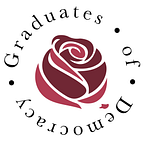Please Forgive Us For The Unacceptable Delay
K. is a good friend of mine. Last year we studied together at one of London’s well-known universities, and in fall last year we both moved to Brussels for an internship. After six months I stayed on, while she found another really interesting traineeship in Luxembourg. K. was really looking forward; she would be starting 1st March. But she couldn’t: K. is Moroccan, and at the end of February she had to go back to Morocco to get her working visa for Luxembourg. She expected to be back in two weeks, but four months later she was still waiting…
K.’s story is one of bureaucratic inefficiency — and probably one of hidden obstructionism from European authorities. It involved the unlikely cooperation of embassies and ministries from Luxembourg, Morocco and Belgium. Indeed, since Luxembourg doesn’t have an own embassy in Morocco, K. had to go through the whole process with the Belgian embassy that had to liaise with the Moroccans and the Luxemburgish; the effort proved to be particularly challenging. Struggle after struggle K.’s visa proved to be more difficult to achieve.
Every file submitted in Casablanca is sent first to Brussels and then to Luxembourg, taking between 6 and 8 weeks to arrive at its final destination. Once in Luxembourg, every application received needs to go through an undefined amount of procedures and steps, which few people within the Belgian or Moroccan consulate services seem to neither master nor understand. The opacity of the procedure prevents from understanding the status of the application or the upcoming steps and thus the remaining waiting time. K. was very often in contact with the Honorary Consul of Luxembourg in Morocco, who seemed overwhelmed by the process, due to miscommunications and bureaucracy. K. was also surprised with the fact that the Luxembourgish Ministry of Foreign Affairs, in the 21st century, relies exclusively on the post to contact the application. Therefore, every letter would take more than 20 days to arrive to Morocco, extending the procedure even longer. The obscure visa procedure was taking its course, slowly but surely…
Even when the passport arrived in Morocco, it took K. weeks and weeks to retrieve the document. She was calling every day the Luxembourgish, Belgium and Moroccan authorities to get things moving. Finally, only the pressure of high ranked people in the Ministry of Foreign Affairs in Morocco — which she knew thanks to personal contacts — got K. and her passport back together. The total length of the procedure? Four months. All this while K. is highly qualified, she already had a job offer in Luxembourg, for a position that was open only to people from the Maghreb, and she is in no way a burden to social security but only an asset for Europe.
Me and K. have so many things in common, but not our passport. If I find a job in Europe, I can start right away. K. had to wait home four months longer than needed, trapped without her passport and without any notice from the authorities that needed to keep her informed. There are thousands of K.s waiting outside of Europe for their entry visa. Lengthy procedures like these keep investors away from our countries — while they are dramatically needed for fuelling our economies — and take hope and enthusiasm away from all those who want to live, work and blossom in Europe, and to contribute to our revival with their passion and skills. K. is in Luxemburg now, her visa finally arrived and she is enjoying the job she finally started on 1st July.
Please forgive us for the unacceptable delay.
-
Robert Zielonka
Graduate of Democracy 2015
